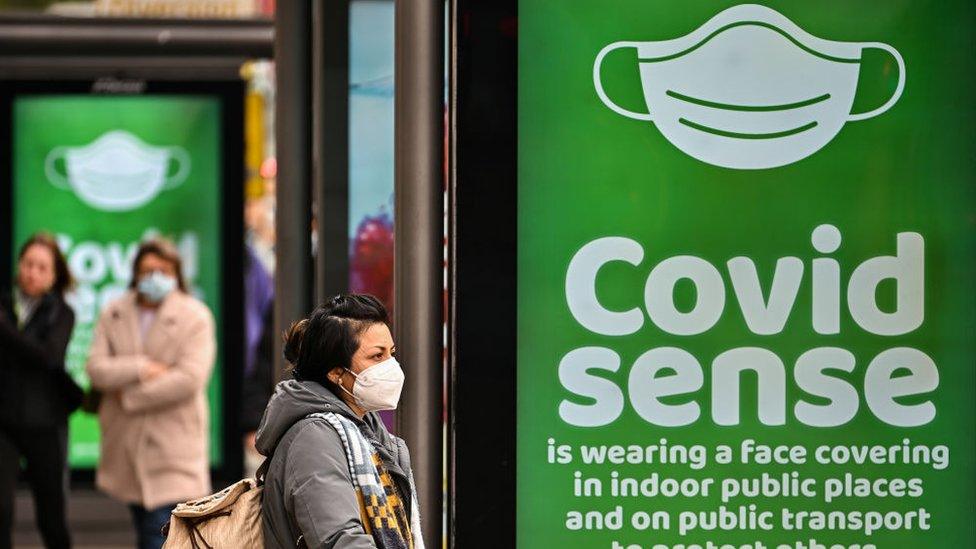Covid deaths in Scotland 'distressingly high'
- Published
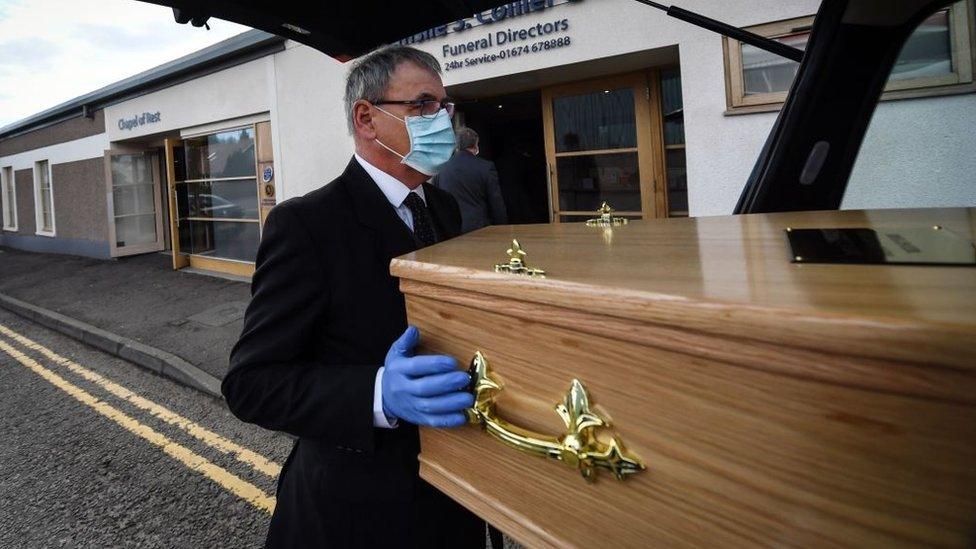
The number of people in Scotland who have died within 28 days of testing positive for the virus now stands at 4,872
Scotland's hospitals have more Covid patients than ever before - with the number of deaths also "distressingly high", the first minister has said.
The latest figures showed that the deaths of 93 people who had tested positive for the virus have been recorded in the past 24 hours.
But the figure includes some people who died over Christmas and New Year.
There were also 1,530 people in hospital with the virus, higher than the peak of 1,520 last April.
Of these, 102 patients were in intensive care - with Ms Sturgeon saying the statistics showed the "severity of the pressure" that hospitals are facing.
The 93 deaths recorded on Friday is the highest daily figure since the outbreak began - with the previous high being 84 on 15 April.
But Ms Sturgeon said the figure will "undoubtedly include some people who died over the Christmas and New Year period and the delay in registration because of the bank holidays means that their deaths are only being reported today."
She added: "To be clear, that is not more than 90 people who died yesterday. It will be people who have died over a period of time.
"That does not change the fact they are all individuals who have died and have died of Covid."
A further 2,309 people have tested positive for Covid-19, which was 8.1% of the tests carried out on Thursday and takes the total number of cases in Scotland to 146,024.
The figures mean that the total number of people in Scotland who have died within 28 days of testing positive for the virus now stands at 4,872.
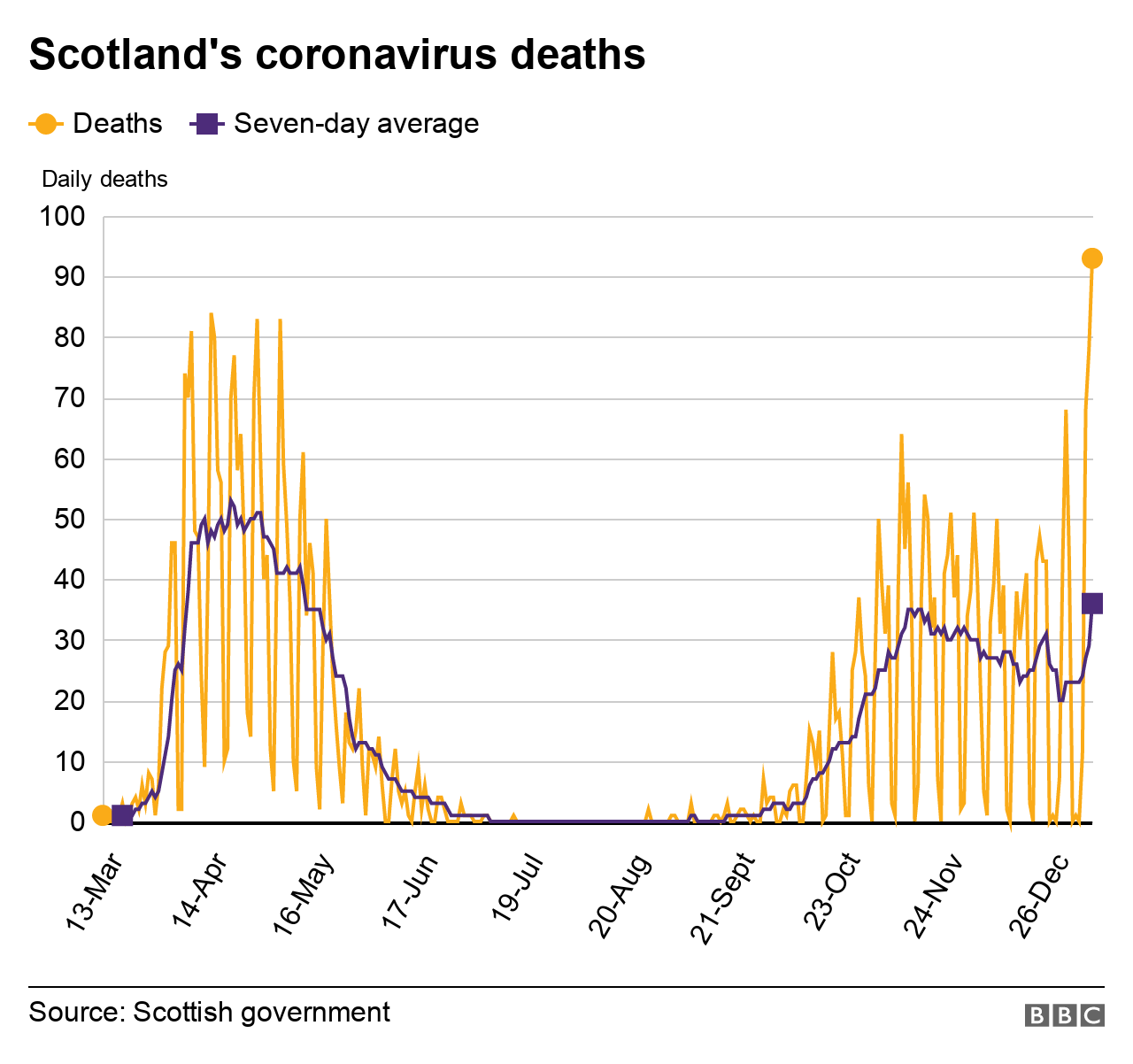
The Scottish government has said it is concerned that too many people have not been following the "stay at home" rules that are in place across the whole of the mainland and some islands.
It believes that more people are using the country's road and public transport networks than during the lockdown last spring.
And it has warned that tougher restrictions could be needed to increase compliance with the travel restrictions.
Ms Sturgeon told her daily briefing that the areas being looked at included non-essential click and collect shopping, further restrictions on takeaway food, non-essential construction and whether more people should be working from home.
The first minister also confirmed that universities and colleges will not resume in-person teaching until at least the end of February.
This means that students should stay at home rather than travelling back to their campus or accommodation.
There will be exceptions for cases where remote study is not possible - for example for a student nurse or a doctor on a practical placement.
And Ms Sturgeon said any students who have remained on campus will be "fully supported" by their institution.
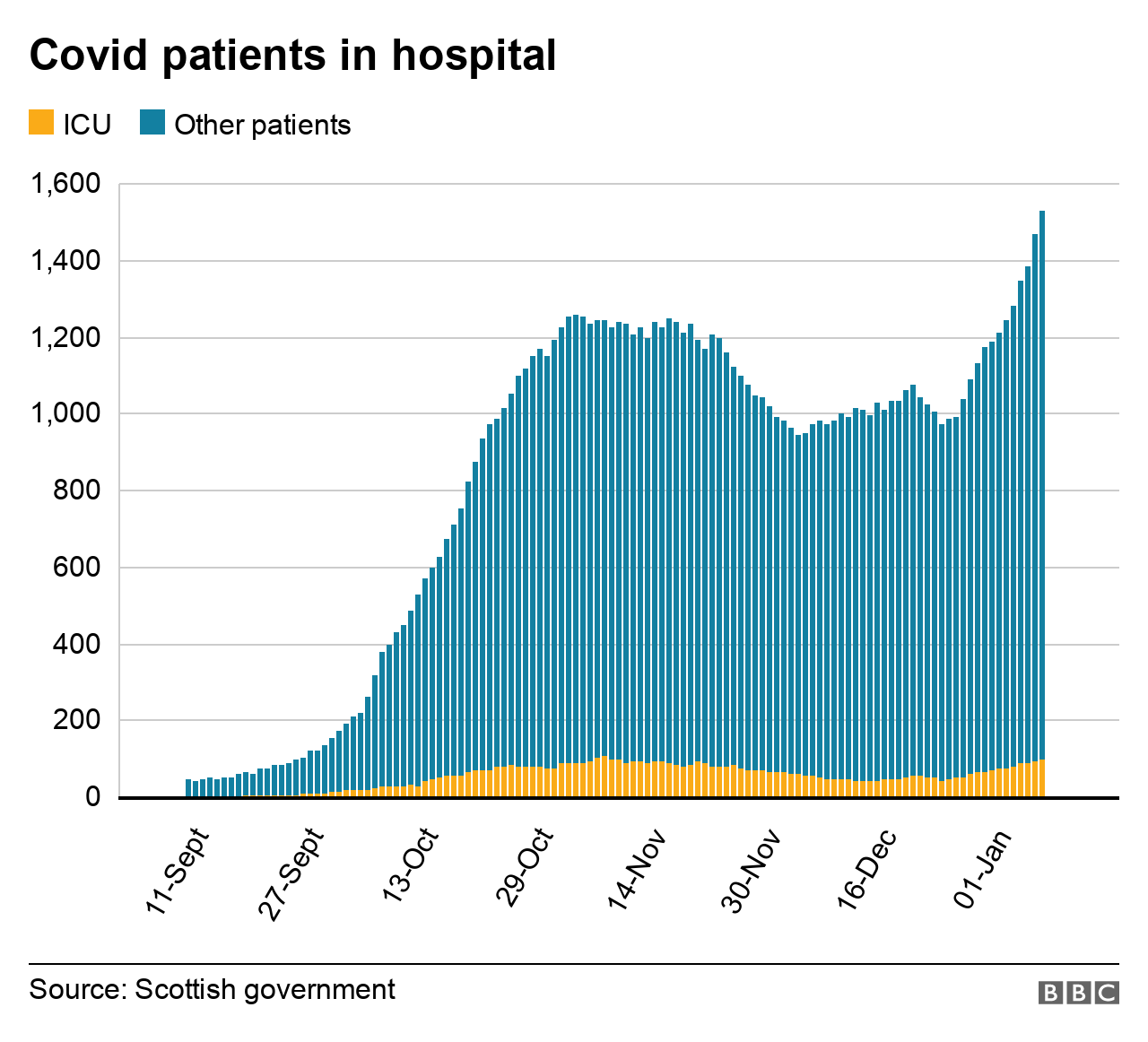
All of mainland Scotland was placed into level four restrictions from 26 December before additional measures, including closing schools to most pupils until at least the end of the month, was introduced on Tuesday.
Scotland's interim chief medical officer, Dr Dave Caesar, insisted on Friday morning that coronavirus case numbers in January "could have been worse".
He said the restrictions that were introduced on Boxing Day had helped to "blunt the spike" but warned that the country was "not out of the woods yet".
Dr Caesar told the BBC's Good Morning Scotland programme: "Our case numbers are high, but they're not as high as they could have been if we hadn't taken the measures that we undertook from Boxing Day.
"Our health system is under serious pressure but is coping.
"I hate to say it, but it could have been worse by this time in January. We're not out of the woods yet by any stretch of the imagination, but I suppose we're holding our own in very significantly challenging circumstances."
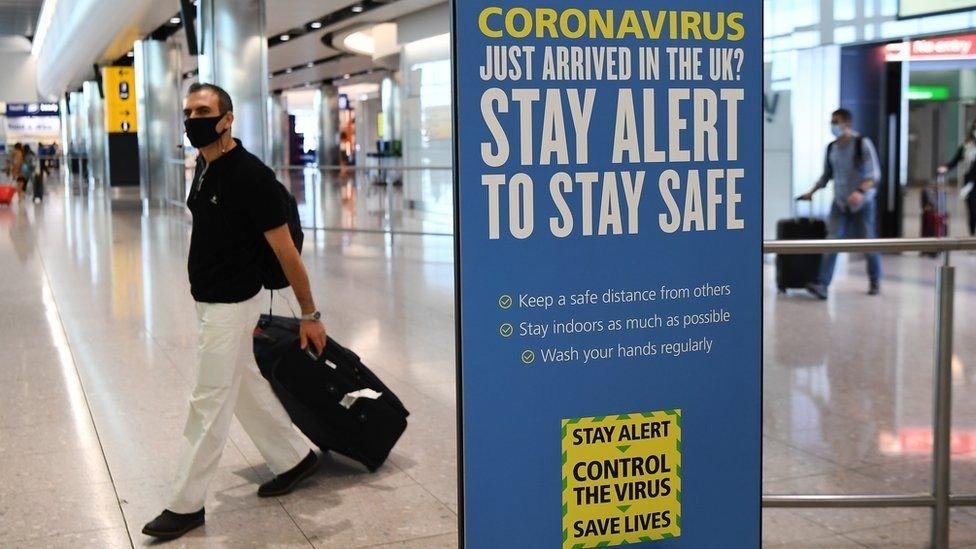
New Covid testing measures for international travellers are to be introduced
New plans to make international passengers test negative for Covid-19 before travelling to Scotland and England have also been unveiled, with Ms Sturgeon saying she hoped the scheme could start by the end of next week.
It will mean people arriving by plane, train or boat - including UK nationals - will have to take a test up to 72 hours before leaving the country they are travelling from.
Prof Linda Bauld of Edinburgh University said the move was long overdue as the UK had "really struggled from the beginning" with limiting the impact of international travel on the pandemic.
But she said the country should also consider introducing supervised quarantine for people arriving from overseas.


Related topics
- Published13 January 2023
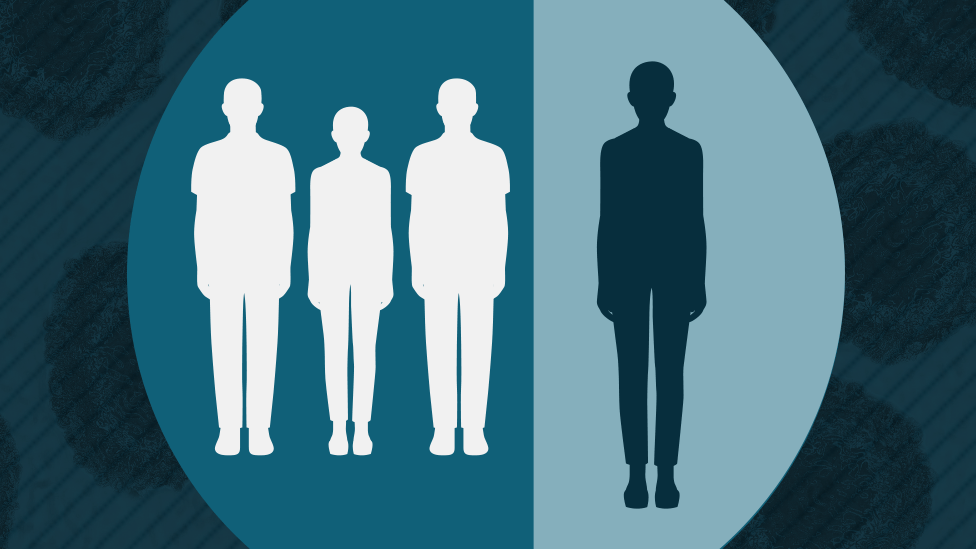
- Published8 January 2021
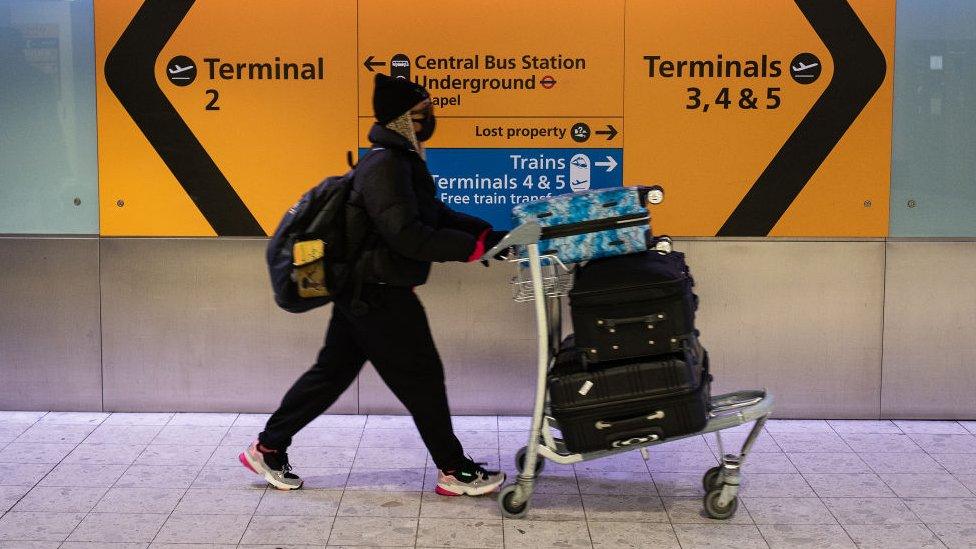
- Published1 July 2022
